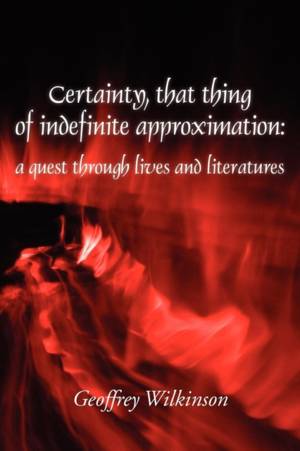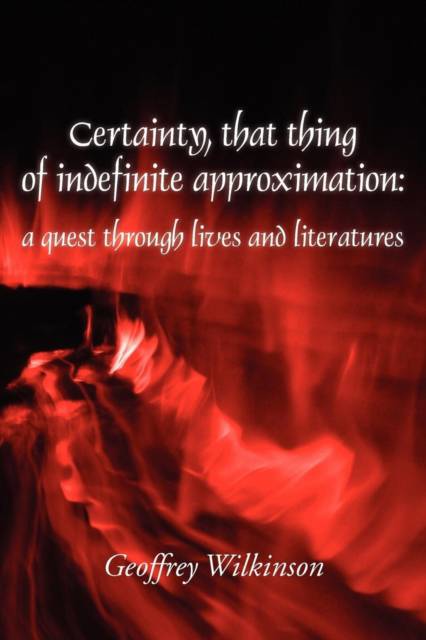
- Afhalen na 1 uur in een winkel met voorraad
- Gratis thuislevering in België vanaf € 30
- Ruim aanbod met 7 miljoen producten
- Afhalen na 1 uur in een winkel met voorraad
- Gratis thuislevering in België vanaf € 30
- Ruim aanbod met 7 miljoen producten
Zoeken
€ 13,95
+ 27 punten
Omschrijving
Certainty is not what it used to be. Our ancestors had the certainty of their gods, myths and rituals, then of one God, his purposes and the orderliness of all that he had created. The Enlightenment promised a world freed from the lore of the past by the power of human reason; the industrial age a world endlessly made better by the unstoppable force of Progress. Few such absolute certainties survive in the twenty-first century and yet, it seems, we cannot resist the urge to cling on to the old ones, or to fabricate new ones. Why is this so? Certainty, that thing of indefinite approximation pieces together answers from an original and sometimes startling mix of sources - ranging from religious and philosophical texts to memoir, fiction and popular science. We would live better with ourselves and with each other, it concludes, if more of us could learn to tolerate 'being in uncertainties'.
Specificaties
Betrokkenen
- Auteur(s):
- Uitgeverij:
Inhoud
- Aantal bladzijden:
- 254
- Taal:
- Engels
Eigenschappen
- Productcode (EAN):
- 9780755214792
- Verschijningsdatum:
- 28/06/2012
- Uitvoering:
- Paperback
- Formaat:
- Trade paperback (VS)
- Afmetingen:
- 156 mm x 234 mm
- Gewicht:
- 358 g

Alleen bij Standaard Boekhandel
+ 27 punten op je klantenkaart van Standaard Boekhandel
Beoordelingen
We publiceren alleen reviews die voldoen aan de voorwaarden voor reviews. Bekijk onze voorwaarden voor reviews.











